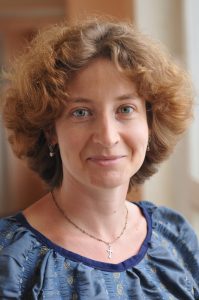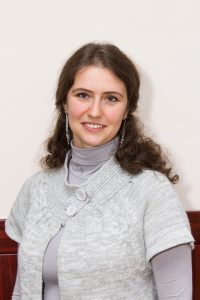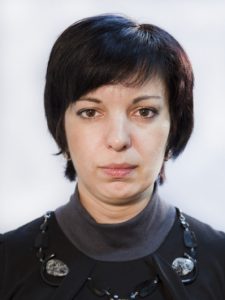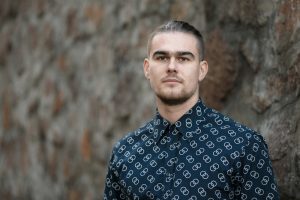Research grants 2017
The HREC Research Grants Competition is held annually to support academic research on the Holodomor, the publication of research results, the preservation of materials, and the organization of and participation in academic venues. Each year, a new thematic focus is established, though proposals for other topics are considered. The applications are reviewed by a committee of scholars and HREC associates.
-
2017 HREC Research Grants Competition
In 2017, HREC held its fourth research grants competition. The focus was on projects concerning the Holodomor that sought to conduct and publish research, preserve relevant materials, and organize or engage in academic events.
For the first time, HREC considered proposals for collaborative projects involving two or more individuals and/or institutions, with the intention of fostering engagement among researchers and institutions in and outside of Ukraine.
This year HREC awarded seventeen grants totaling $36,250.00 CAD, which ranged from $750.00 to $5,300.00 CAD.
Individual Projects 2017
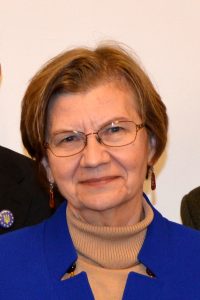
Lana Y. Babij
Librarian Emeritus, University of Connecticut; Connecticut Holodomor Awareness Committee
Digital Archive of Non-Soviet Photographs Documenting Famine Conditions During the Holodomor
This project aims to complete work begun in 2016 with regard to Holodomor-related photographs published outside the USSR from 1932-1939. The photographs will be prepared for inclusion into a searchable online digital archive. Each photograph will be accompanied by basic descriptive metadata as well as publication history and notes of interest. The database will also include a selection of photos from the 1920s that often have been used to depict the 1930s Holodomor, along with each photo’s pre-1925 publication history.
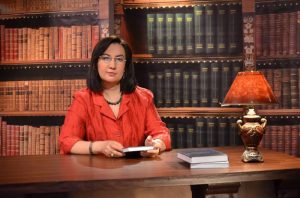
Gulnara Bekirova
Deputy Director of the Special Commission of the Kurultay for the Study of the Genocide of the Crimean Tatar People
Deportation and Hunger: Crimean Tatar Memories of Their Shared Fate with Ukrainians under Stalinist Rule
Many historical parallels exist between Ukrainian and Crimean Tatar experiences under Soviet rule, including deportation and mass starvation. Oral histories of Crimean Tatars who lived through the famine of 1921-22, the Holodomor of 1932-33, and the deportation of 1944 reveal that witnesses perceived a direct association between these events and Stalinist policies. Through the analysis of existent and new oral histories, Bekirova will investigate how memories of the tragedies of deportation and starvation, and their association with Stalinist policies, have been preserved and transmitted across generations of Crimean Tatars.
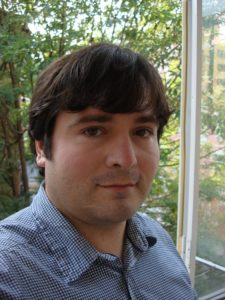
Brent Bezo
PhD Candidate, Department of Psychology, Carleton University
The Multi-Level Impacts of the 1932-1933 Holodomor on Descendants of Survivors
Bezo’s research investigates the psychosocial impacts of the Holodomor that have been passed on to descendants of Holodomor survivors. Specifically, this research investigates how the Holodomor may have impacted family and community functioning and socio-cultural norms through the generations and, in turn, how these multilevel impacts may affect the well-being of individuals who did not directly experience the Holodomor but whose ancestors were survivors.
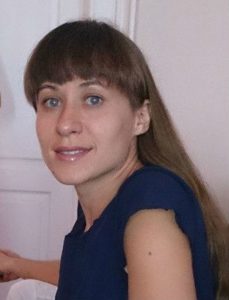
Yulija Hryschenko
PhD, Institute of the History of Ukraine, National Academy of Sciences of Ukraine (Defended dissertation in December 2016)
Bulgarians in the Ukrainian SSR: Collectivization and Famine
Hryschenko studies the impact of collectivization and famine on the Bulgarian minority in Soviet Ukraine during the 1920s and 1930s. Communist rule prompted a drastic change to the livelihood of the Bulgarian minority, who had strongly adhered to the concept of individual property, and previously enjoyed relative prosperity in comparison to ethnic Ukrainians. The research will focus on the impact of collectivization, dekulakization, and repressions on the Bulgarian minority during this period, which effectively dismantled the group’s economic and social structures.
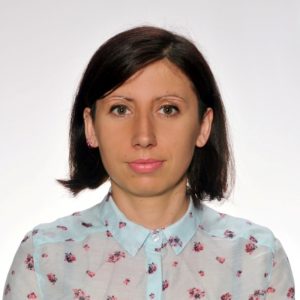
Karolina Koziura
PhD Candidate in Sociology and Historical Studies, The New School for Social Research, New York
Unravelling the Silenced Past. The Memory and Perception of Collectivization in the Eyewitness Accounts of the Holodomor
Koziura will study how experiences of collectivization have figured in the memories of Holodomor witnesses. Through the analysis of testimonies, the research will retrace changes in the social and cultural space of the Ukrainian countryside prompted by the Stalinist modernization project. The research seeks to uncover a subjective understanding of social relations in the countryside, changing property regimes, and different pedagogies of persuasion employed by the Soviet state. The project will also investigate Soviet technologies of “silencing” the Famine and their influence on suppressing memories of the Holodomor. The project will contribute to Koziura’s ongoing PhD dissertation at The New School for Social Research, in which she will construct a historical ethnography of the collectivization of Ukrainian agriculture and its role in the spatial formation of the Soviet Union.
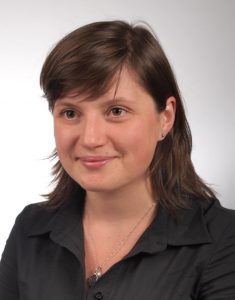
Wiktoria Kudela-Świątek
Coordinator for Arts, Humanities and Social Sciences, National Science Centre, Poland
Places of Memory of the Holodomor , 1932-1933
The project will investigate the visual culture of the Holodomor — specifically, memorials and monuments — in order to better understand the contexts and processes in which memories of the Holodomor are shaped. In particular, the project will examine state-organized commemorative initiatives and the extent to which they are politically motivated and driven by the needs of Ukrainian society. The project will also investigate why painful memories of the Holodomor have resurfaced in contemporary society, and will argue that these memories hold the potential to strengthen Ukrainian societal unity. The analysis of memorials and monuments will serve as a starting point for further studies on the history and politics of memorializing the Holodomor.
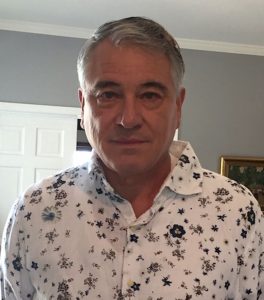
William Noll
Independent Scholar
Transformation of Civil Society. An Oral History of Ukrainian Peasant Culture of the 1920s and 1930s
The project will translate into English a book of the same name, originally published in Ukrainian in 1999. The book contains segments of interviews with elderly villagers collected in Ukraine in 1993-1995, which address a range of themes related to repressions, collectivization, and the Holodomor. In particular, the book details the nature of peasant culture and civil society before collectivization and the Holodomor and the ravages on culture that these events and ideas inflicted upon nearly all villages in Eastern and Central Ukraine from approximately 1928 to 1934.
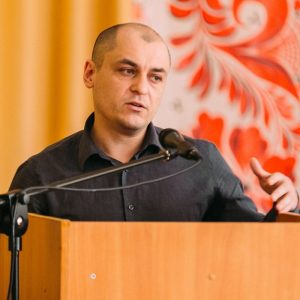
Vitalii Ogienko
Senior Lecturer, Faculty of Humanities, National University of “Kyiv Mohyla Academy”; Lead Specialist, Ukrainian Institute of National Memory, Kyiv
Holodomor as Historical Trauma
Ogienko will study how the experience of trauma during the Holodomor has influenced the development of a cultural memory of the Famine and how this memory has been transmitted over generations. Within the context of the project, historical trauma refers to the transmission of accumulated symptoms, images, representations, and discourses prompted by the experience of trauma. The investigation will involve an analysis of memoirs, journal articles, fiction, folkloric literature, and testimonies.
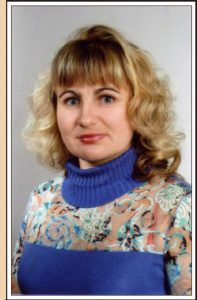
Lesya Onyshko
Director, Research Department, National Museum, “Memorial to the Victims of the Holodomor”
Holodomor 1932-33 in Ukraine: Information Dissemination and Western Reactions in the First Half of the 1930s
Research will be conducted into the passivity of Western diplomacy during the time of the Holodomor and the reluctance of the West to interfere in the internal affairs of the Soviet Union. Documents from contemporary diplomatic missions — including from Italy, Poland, Germany, and Britain — reveal that foreign governments were aware of the Famine around the time of its occurrence but do not explain their passive response. The research will thus investigate internal and external considerations that underlay this passivity. Focus will be placed on Soviet efforts to block the spread of information on the Famine and corresponding efforts to disseminate disinformation — activities that constitute elements of information warfare.
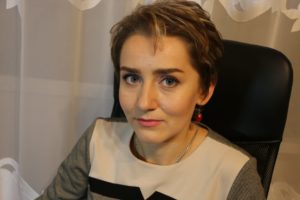
Yana Prymachenko
Managing Editor, Holodomor Studies
Ukrainian Culture in Periods of Societal Transformation
This project will research the artistic development of “social realism” among Ukrainian intellectuals and its relation with the Holodomor. During the first Five-Year-Plan (1928-1933), a “cultural revolution” was initiated in Soviet Ukraine, a first step towards the creation of a new society of the “Soviet people.” The revolution sought to develop loyalty towards the Bolsheviks, and particularly among intellectuals, who were perceived to be the foremost producers of moral and spiritual values. Discussions in artistic circles on the eve of the implementation of the CC CPSU (b) resolution “On the Reconstruction of Literary and Artistic Organizations,” dated April 23, 1932, are particularly informative on the development of “social realism” in Ukrainian culture, and will be the focus of the research.
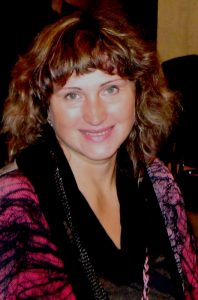
Olha Ryabchenko
Director, Department of History and Culture, O.M. Beketov National University of Urban Economy, Kharkiv
Student Participation in Collectivization, Sowing, and Harvesting Campaigns in the Period of Stalin’s Revolution from Above and the Holodomor (1928-1933)
The project will research the participation of university students in the Soviet transformation of the Ukrainian countryside around the time of the Holodomor. It will involve an analysis of student accounts of events in the village, student attitudes towards villagers, and student-villager interactions. Research will also be conducted into how students reacted to government policies implicating them in collectivization, and their forms of protest in this regard. Finally, the research will analyze attitudes of authorities towards the students and the penalties that were incurred for non-compliance with government mandates.
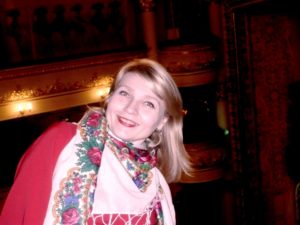
Inna Shugalyeva
Associate Professor, Department of the History of Ukraine, Zaporizhzhya National University (ZNU); Research Associate, Department for Innovative Educational Technologies, ZNU
Infant Mortality in State Childcare Institutions during the Holodomor, 1932-1933
During the Holodomor, state childcare institutions in Soviet Ukrainian cities witnessed widespread mortality among its child wards. The project will look to clarify the reasons and dynamics of this mass mortality, investigate the infrastructure of the childcare institutions, and research the provision of food and healthcare to the children. The project will also involve the creation of an interactive map locating the child care institutions that existed in the network.

John Vsetecka
PhD Candidate, Department of History, Michigan State University
Feeding the Mind, Starving the Body: Children, Education, and Social Memory during the Ukrainian Holodomor, 1928-1933
This project will utilize themes of empire and colonialism as lenses to examine how Soviet (re)education attempted to eradicate Ukrainian language and culture during the Holodomor and what this meant for Ukrainian children who were exposed to this Soviet system. The project will utilize the testimonies of Holodomor survivors — many of whom were children in 1932-33 — which were provided to the U.S. Commission on the Ukraine Famine in the late 1980s. Research will also be conducted in the Communist Party Archives and the Central State Archive of Public Organizations in Kyiv, to gain an understanding of how political ordering and education influenced the social milieu in Ukraine during the Famine.
Collaborative Projects 2017
Gelinada Grinchenko
Professor, Ukrainian Studies, V.N. Karazin Kharkiv National University; Director, Ukrainian Association of Oral History
Yaroslava Muzychenko
Researcher, Museum of the History of Ukraine
Iryna Reva
Research Associate, Institute of the History of Dnipro, Dnipro Development Agency, Dnipro Municipal Council
Holodomor as Oral History: Objective Event and Subjective Narrative
The project will focus on aspects of subjectivity in existing and new oral histories about the Holodomor. Employing a novel methodological approach, Grinchenko will consider oral histories on the Holodomor not as a set of facts but as a set of complex human emotions, concerns, and interpretations. Grinchenko’s analysis will focus not on what is being told, but how and why witnesses build their memories the way they do. Muzychenko will analyse existing and new oral histories among descendants of Holodomor victims to understand how Ukrainian society was negatively influenced by Soviet anti-religious policies. Finally, Reva will collect oral histories from veterans of the current Russian-Ukrainian war, in order to illuminate links between the transmission of memory among victims of these contemporary events and those of the Holodomor and Stalinist repressions.
Tetiana Zabolotna
Research Associate, Institute of the History of Ukraine, National Academy of Sciences of Ukraine; Secretary, Department of the History of Ukraine during the Second World War
Oleksandr Lysenko
Director, Department of the History of Ukraine during the Second World War, Institute of the History of Ukraine, National Academy of Sciences of Ukraine
Oleksandr Mayevsky
Research Associate, Department of the History of Ukraine during the Second World War, Institute of the History of Ukraine, National Academy of Sciences of Ukraine
Holodomor in the Collective and Individual Memory of Ukrainians and in the Informational Space of the Second World War
The project will study the development of individual and collective memory of the Holodomor during the Second World War, when information about the extent of the tragedy was initially brought to light. Preliminary research has already revealed that the disclosure of crimes committed under Stalin’s regime deepened the crisis of loyalty towards the Bolshevik regime. Memories of the Holodomor thus became a defining factor in the way not only witnesses of the Holodomor, but also their descendents, were to perceive Soviet totalitarianism.

